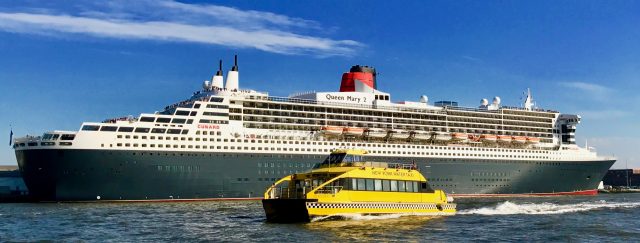The post-Covid future: Transformational travel transformed
2020-06-09My wife, who studies such things professionally, tells me that the most successful species in the insect world are those that transform throughout their lives into very different stages of being.
And the insect whose life cycle is both most striking and familiar to us — the very symbol (and, perhaps, cliche) of transformation — is the butterfly.
The Covid-19 crisis has forced dramatic change upon all of us, so indulge me as I apply the butterfly metaphor to travel: We’re in the cocoon stage.
That is, of course, the most remarkable phase, the one in which it appears that almost nothing is happening, yet an extraordinary process is underway.
What will emerge from our cocoon? Prior to the virus, the travel industry had already evolved from observational products to authentic, then experiential, then immersive and finally transformational offerings. Consumers had become hungry, hungry caterpillars, enabled by ever-increasing ease of movement and access to new environments.
In more and more places, however, hosts began to regard visitors as an invasive species, displacing and despoiling rather than enriching local ecosystems. Overtourism was recognized as a threat not only by the sites enduring an influx of “guests” but even by the very industry that profited from an ever-expanding tourism economy.
So — was it only a few months ago? — we appeared to be at the confluence of enlightenment (transformational travel) and scourge. One branch of the transformational movement focused on self-improvement through immersion in unfamiliar cultures and landscapes — and spas. The other branch actively sought meaning in their own lives by including volunteer efforts that contributed to a host destination’s well-being.
There are indications that our chrysalis stage may be nearing its end. Last week saw a significant rise in the number of destinations, resorts and cruise lines putting out timelines for reopening. What emerges as the “new normal” in travel will go well beyond the introduction of health, sanitation and safety protocols. Those will be transitional. What will also emerge will be an entirely new trajectory for the industry.
It’s my hope that plans for the resumption of travel reflect serious consideration about ways we can avoid treading the same paths that may have been profitable but ultimately self-defeating. It was hard to slow the momentum of business patterns that are lucrative, even when they’re destructive to the very places that underpin the industry. Destinations were often viewed as a commodity whose supply had not yet been exhausted. If a place became less attractive due to the impact of tourism, new destinations would always emerge.
Changes in traveler sentiment post-Covid are hard to predict because they’re still being formed. But there are clues: We’re all undergoing what may be the largest extended shared global experience in humankind’s history, and despite cultural differences, there are commonalities: There are shared limitations to our movements, shared limitations to the functions of our professional lives. We have, in common, empathy for the suffering of those directly impacted by the disease, concern for the unemployed, sadness for the disrupted lives of children, sympathy for those whose ventures were recently launched or whose dreams were derailed on the cusp of fulfillment. Appreciation for those on the front lines, fighting the disease. Many of us are biding time or, in our businesses, buying time.
How all of this will change our thoughts about traveling will vary by individual, but I suspect that both branches of transformational travel — self-improvement and destination community improvement — will evolve into what could be called “renewal” tourism. Post-Covid, we’re not starting from scratch nor picking up where we left off but entering a world that is both familiar and changed. There will be, I believe, more appreciation for what had been taken for granted and a determination not to mess it up again.
Our extended period in close proximity with our families will, I hope, manifest in a greater awareness of our roles as custodians of the planet that we’re leaving our children. We’re appreciating cleaner air and perhaps lower volumes of noise, even as we miss society’s energy and stimulation. But whereas before we may have supposed that calm and excitement were mutually exclusive, there may emerge a stronger desire to combine a balance of the two, not only in our lives but in our travels.
Destinations that offer a clean environment and compelling culture, ones that organically enable travelers to renew, rebalance, readjust and redefine, will characterize the new transformative travel.
Of course, places fitting that description have always been attractive. In fact, many destinations associated with overtourism — Dubrovnik and Barcelona come to mind — provided just those opportunities before being overwhelmed.
The industry, too, is in need of renewal, rebalancing, readjustment and redefinition. To emerge from our cocoon as something more beautiful than what went in will require that concepts we have always promoted — authenticity, sustainability, community support — transform from marketing buzzwords into operating philosophies. That’s my hoped-for butterfly effect.
Courtesy of Travel Weekly


